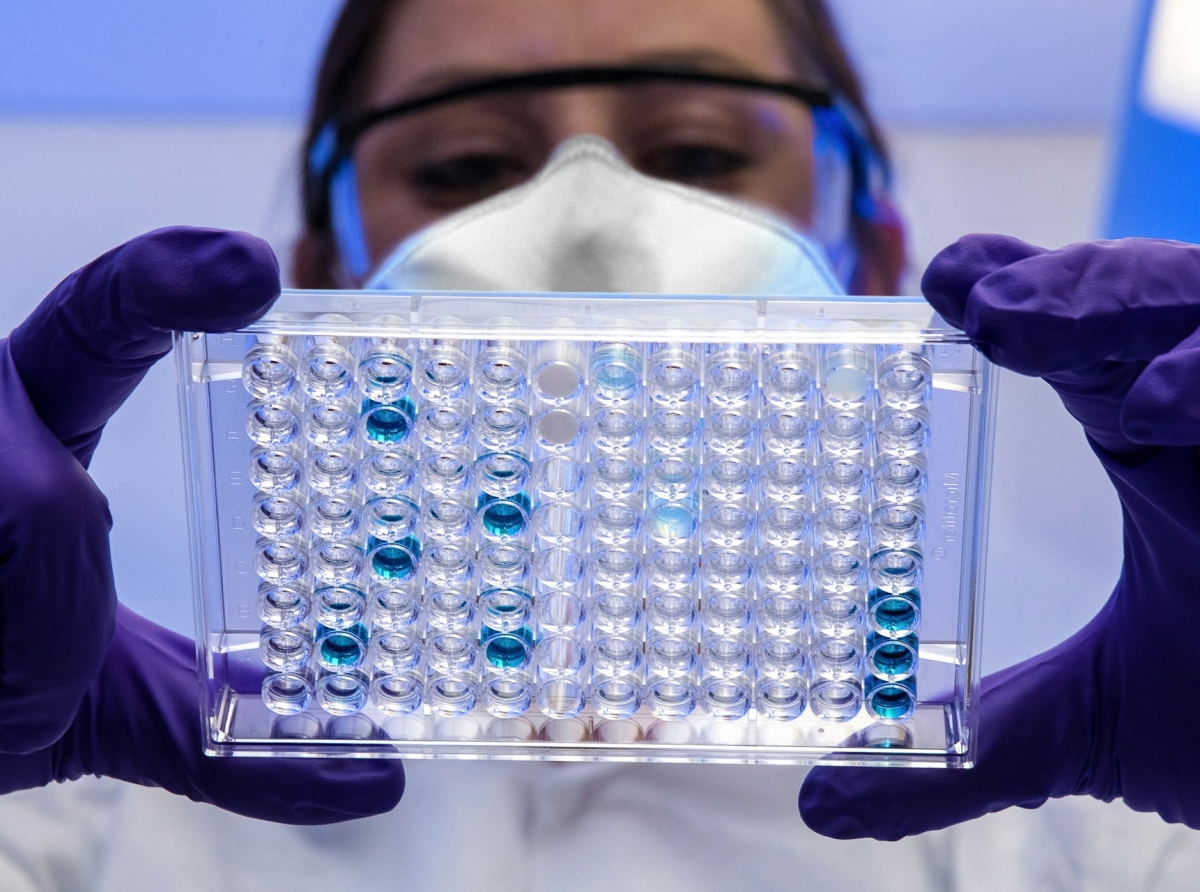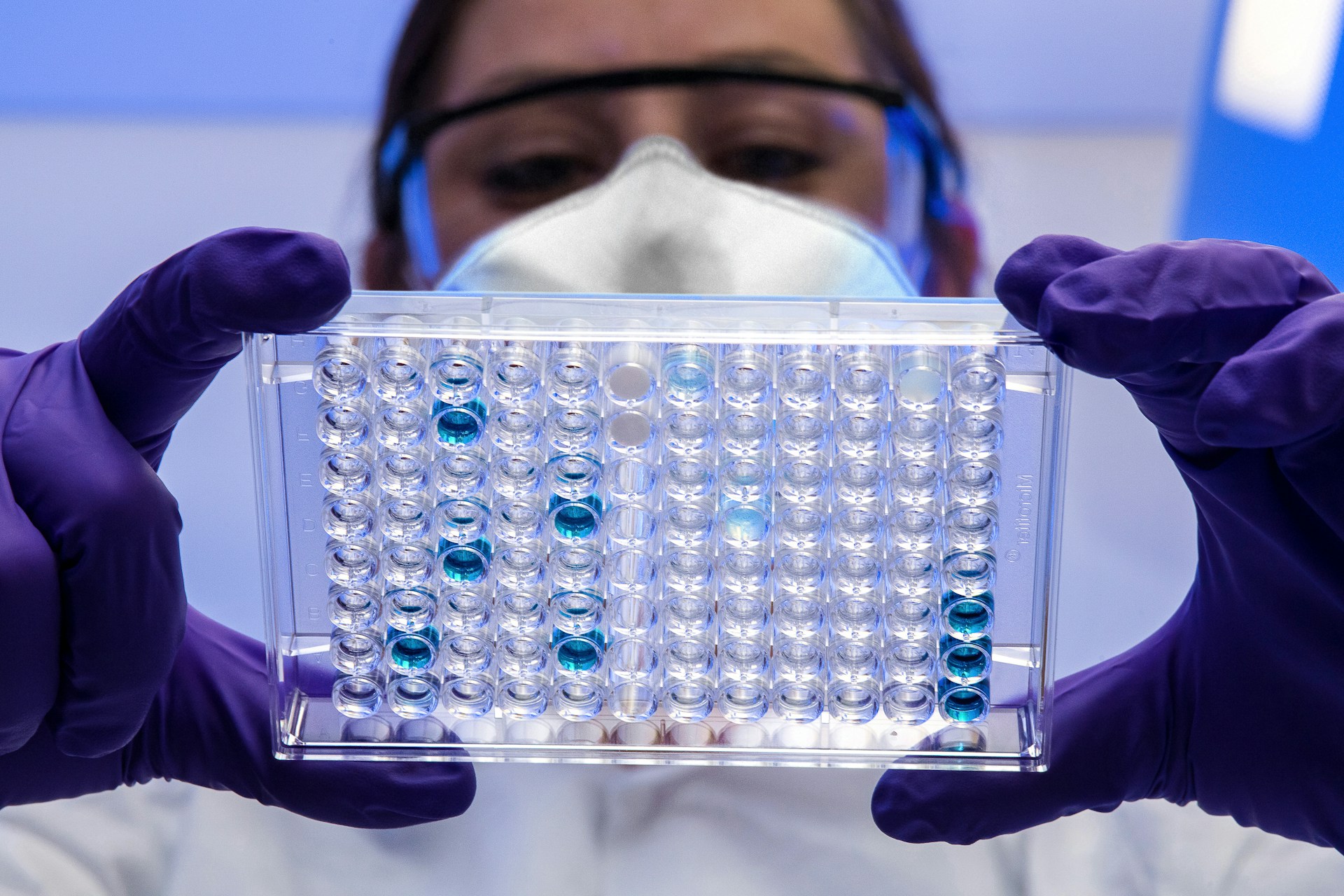China’s Rapid Rise in Biotechnology: Closing the Gap with the U.S.

China’s Rapid Rise in Biotechnology: Closing the Gap with the U.S.
China is rapidly emerging as a global leader in biotechnology, posing a significant challenge to U.S. dominance in this critical sector.
According to a new report by Harvard’s Belfer Center for Science and International Affairs, China has the strongest potential to surpass the United States in biotechnology among five key technological fields, including artificial intelligence, semiconductors, space, and quantum technologies.
According to a new report by Harvard’s Belfer Center for Science and International Affairs, China has the strongest potential to surpass the United States in biotechnology among five key technological fields, including artificial intelligence, semiconductors, space, and quantum technologies.

China’s Rapid Rise in Biotechnology: Closing the Gap with the U.S.
While the U.S. remains ahead in all five areas, the narrow gap between the two nations in biotechnology suggests that future developments could quickly shift the global balance of power.
“For biotechnologies, there will be a ChatGPT moment, and if China gets there first, we may never catch up,” warned a bipartisan congressional commission in an April report.
The commission urged the U.S. government to invest at least $15 billion over the next five years to bolster its domestic biotech industry.
“For biotechnologies, there will be a ChatGPT moment, and if China gets there first, we may never catch up,” warned a bipartisan congressional commission in an April report.
The commission urged the U.S. government to invest at least $15 billion over the next five years to bolster its domestic biotech industry.
China’s biotech boom is driven by strategic government initiatives, flexible regulations, and a vast pool of skilled researchers.
In March, British pharmaceutical giant AstraZeneca announced a $2.5 billion investment in a research hub in Beijing, highlighting the growing appeal of China’s biotech ecosystem.
Meanwhile, startups like Insilico Medicine are leveraging AI to accelerate drug discovery, conducting trials with globally distributed teams.
The U.S., however, faces challenges. Biotech hubs in Cambridge and Boston have reported layoffs and empty labs, reflecting financial pressures on American companies.
Experts warn that without a coordinated national strategy, the U.S. risks falling behind as China capitalizes on its strengths in manufacturing, talent, and innovation.
In March, British pharmaceutical giant AstraZeneca announced a $2.5 billion investment in a research hub in Beijing, highlighting the growing appeal of China’s biotech ecosystem.
Meanwhile, startups like Insilico Medicine are leveraging AI to accelerate drug discovery, conducting trials with globally distributed teams.
The U.S., however, faces challenges. Biotech hubs in Cambridge and Boston have reported layoffs and empty labs, reflecting financial pressures on American companies.
Experts warn that without a coordinated national strategy, the U.S. risks falling behind as China capitalizes on its strengths in manufacturing, talent, and innovation.
China’s dominance in biotech could become another geopolitical lever, similar to its control over rare earth elements.
“The likelihood of U.S.-China collaboration in biotechnology is minimal,” noted Eric Rosenbach, director of defense and technology strategy at the Belfer Center.
This raises concerns about the future of global biotech development, which increasingly depends on cross-border partnerships.
Despite these tensions, some experts believe the future of biotechnology will remain inherently global.
Alex Zhavoronkov, CEO of Insilico Medicine, emphasized that his company relies on a worldwide network, with AI work conducted in Canada and Abu Dhabi, while chemical experiments take place in China.
He added that regulatory timelines and market dynamics vary significantly across regions, creating opportunities for arbitrage.
“The likelihood of U.S.-China collaboration in biotechnology is minimal,” noted Eric Rosenbach, director of defense and technology strategy at the Belfer Center.
This raises concerns about the future of global biotech development, which increasingly depends on cross-border partnerships.
Despite these tensions, some experts believe the future of biotechnology will remain inherently global.
Alex Zhavoronkov, CEO of Insilico Medicine, emphasized that his company relies on a worldwide network, with AI work conducted in Canada and Abu Dhabi, while chemical experiments take place in China.
He added that regulatory timelines and market dynamics vary significantly across regions, creating opportunities for arbitrage.
Data shows that China now leads the U.S. in the number of clinical trials, patents, and overall activity in life sciences.
As Yang Fan, a partner at Chinese venture firm Capital O, remarked, “The Chinese market is like a giant supermarket where anything can be turned into a product, whether it’s AI or biotech.”
With advancements in AI reducing innovation costs, Fan predicts a transformative breakthrough in biotech within the next five years.
As Yang Fan, a partner at Chinese venture firm Capital O, remarked, “The Chinese market is like a giant supermarket where anything can be turned into a product, whether it’s AI or biotech.”
With advancements in AI reducing innovation costs, Fan predicts a transformative breakthrough in biotech within the next five years.









Report
My comments